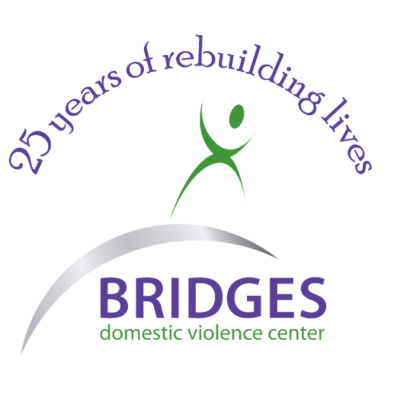Every day, countless individuals find themselves trapped in the cycle of domestic violence–feeling isolated, afraid, and not sure where to turn. But nobody should have to face this alone. Community support is one of the keys to breaking the cycle because it brings survivors invaluable resources, in addition to the social connections, moral support, and hope they need to rebuild their lives.
At Bridges Domestic Violence Center, we make it our mission to create a community where everyone feels safe and supported. In today’s blog, let’s talk about why community involvement is so important for the short- and long-term health and safety of domestic violence survivors–and how you can join in and help.
Understanding the Cycle of Domestic Violence
Domestic violence often follows a repeated pattern. It starts with a tension-building phase, an incident of abuse, reconciliation, and a calm period before the cycle begins again. Because the nature of this cycle can create a false sense of hope and normalcy (or, on the other hand, make it feel as if a victim’s life is completely out of their control), survivors often feel trapped. Often they are emotionally torn between fear and attachment. They might also feel trapped due to financial dependence, social isolation, and threats of harm to themselves or others, which makes leaving seem impossible.
Exiting the cycle can feel incredibly overwhelming, scary, and even unthinkable for survivors, especially if they don’t have outside support. This is why having a strong, compassionate, and caring community can make all the difference: it provides not only practical resources but the reassurance that survivors are not alone in their journey to safety and healing.
How Community Involvement Promotes Not Only Short-Term Safety for Survivors, But Also Long-Term Healing
Once a victim has left the cycle of abuse, they are often in dire need of the basics: housing, food, and safety. Short-term support is critical during this time, as it provides survivors with immediate relief and stability for themselves and any children or codependent family members. Access to shelters, legal aid, and financial resources helps them take the first steps toward independence and protection from further harm.
However, this initial safety is just the beginning. Long-term healing relies on the continued support of a compassionate community who provides not only practical assistance but also emotional connection and empowerment. With ongoing support from a community they know and trust, survivors can rebuild their lives, regain their confidence, and build up the resilience they need to thrive beyond their past trauma.
How Community Involvement Promotes Not Only Short-Term Safety for Survivors, But Also Long-Term Healing
Once a victim has left the cycle of abuse, they are often in dire need of the basics: housing, food, and safety. Short-term support is critical during this time, as it provides survivors with immediate relief and stability for themselves and any children or codependent family members. Access to shelters, legal aid, and financial resources helps them take the first steps toward independence and protection from further harm.
However, this initial safety is just the beginning. Long-term healing relies on the continued support of a compassionate community who provides not only practical assistance but also emotional connection and empowerment. With ongoing support from a community they know and trust, survivors can rebuild their lives, regain their confidence, and build up the resilience they need to thrive beyond their past trauma.
Want to Help Out? Here Are 3 Ways You Can Support Survivors of Domestic Abuse in the Franklin Community.
You have the power to make a difference in the lives of those who need it most. Here are the three most impactful ways you can get involved and help survivors in the Franklin community break the cycle of abuse:
- Raise Awareness.
Education is one of the best tools we have to prevent domestic violence. By attending local awareness events, sharing resources, and having conversations about healthy relationships, you can help reduce stigma and encourage more individuals to seek help. Even if it doesn’t seem like it, your voice can inspire others to act.
- Make a donation.
Donations directly support survivors, supplying them with essential resources such as shelter, counseling, and financial assistance. Whether it’s a one-time gift or ongoing support, your contribution can fund the vital care survivors need to heal and rebuild their lives. You can also ask your workplace to make a donation or match your contribution, amplifying your impact on Franklin survivors.
- Volunteer.
Giving your time, energy, and skills is another powerful way to make a difference. Whether you work directly with survivors, help with administrative tasks, or help at events, volunteering not only serves survivors’ practical needs but also strengthens their support network.
Breaking the Cycle Starts with Us.
Ending domestic violence requires collective action. By raising awareness, providing resources, and volunteering, the Franklin community can empower survivors to turn over a new leaf and live the life they deserve.
As the only domestic violence shelter in Williamson County, Tennessee, Bridges exists to provide domestic violence survivors with life-saving support and a path to independence and long-term healing. Our not-for-profit, non-discriminatory organization offers provides exit strategies, emergency shelters, resources, and more free of charge to anyone who has experienced physical, mental, or sexual abuse.
If you’d like to join us in that endeavor, don’t hesitate to share resources, make a donation, or volunteer with us. To discover additional ways you can support Bridges Domestic Violence Center, visit our website or get in touch with our team.
[ I Want to Support Survivors and Be a Part of the Solution. ]
